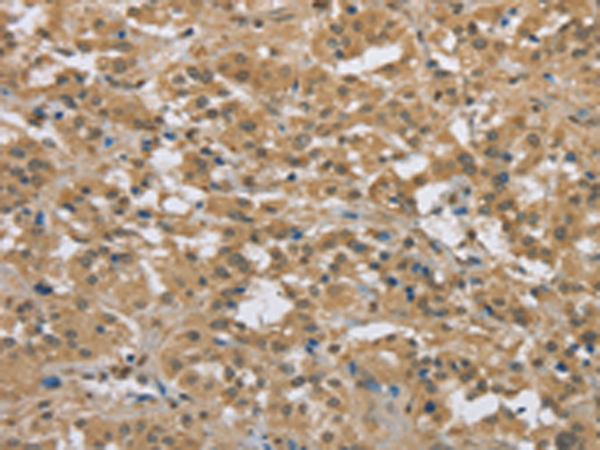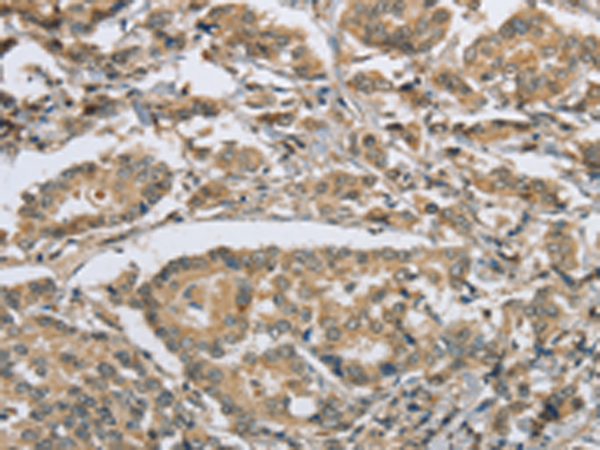

| WB | 咨询技术 | Human,Mouse,Rat |
| IF | 咨询技术 | Human,Mouse,Rat |
| IHC | 1/50-1/200 | Human,Mouse,Rat |
| ICC | 技术咨询 | Human,Mouse,Rat |
| FCM | 咨询技术 | Human,Mouse,Rat |
| Elisa | 1/2000-1/5000 | Human,Mouse,Rat |
| Aliases | PBP; Pc-1; TRPP1 |
| Host/Isotype | Rabbit IgG |
| Antibody Type | Primary antibody |
| Storage | Store at 4°C short term. Aliquot and store at -20°C long term. Avoid freeze/thaw cycles. |
| Species Reactivity | Human, Mouse |
| Immunogen | Synthetic peptide of human PKD1 |
| Formulation | Purified antibody in PBS with 0.05% sodium azide and 50% glycerol. |
+ +
以下是关于PKD1抗体的3篇代表性文献的简要信息:
---
1. **文献名称**:*A novel PKD1 antibody demonstrates early defects in renal cystogenesis*
**作者**:Qian F, et al.
**摘要**:该研究开发了一种特异性识别PKD1编码的多囊蛋白-1的抗体,并验证其在人肾组织和小鼠模型中的应用。抗体成功检测到多囊蛋白-1在肾小管上皮细胞膜上的表达,并揭示了囊肿形成早期PKD1蛋白的异常定位。
---
2. **文献名称**:*Polycystin-1 maturation requires a complex of PIGEA14 and Sec63 proteins*
**作者**:Hopp K, et al.
**摘要**:利用PKD1抗体进行免疫沉淀和免疫荧光实验,研究发现多囊蛋白-1在内质网中的成熟过程依赖PIGEA14/Sec63复合物,抗体检测显示该复合物缺陷会导致PKD1蛋白加工异常,从而促进囊肿形成。
---
3. **文献名称**:*Antibody-mediated inhibition of PKD1 cleavage suppresses cystogenesis in vitro*
**作者**:Wei W, et al.
**摘要**:研究通过PKD1抗体阻断多囊蛋白-1的酶切位点,证明抑制其异常裂解可减少肾小管细胞囊泡形成,为靶向PKD1蛋白水解通路的治疗策略提供了实验依据。
---
注:以上文献信息为示例性内容,实际文献需通过PubMed或学术数据库检索确认。如需具体文献,可进一步提供研究方向或应用场景。
×